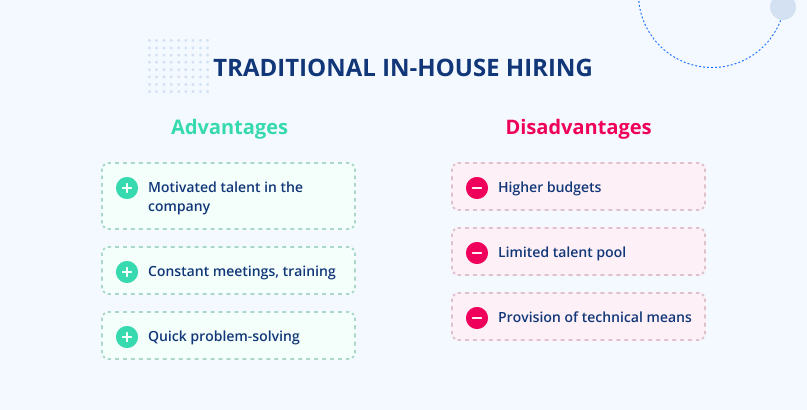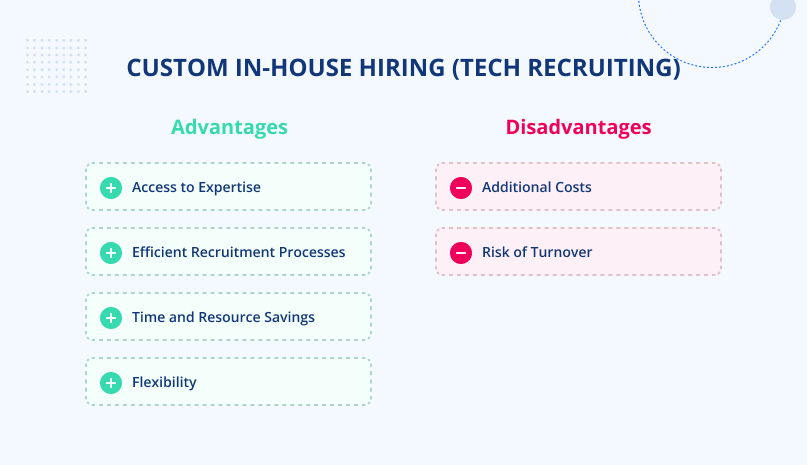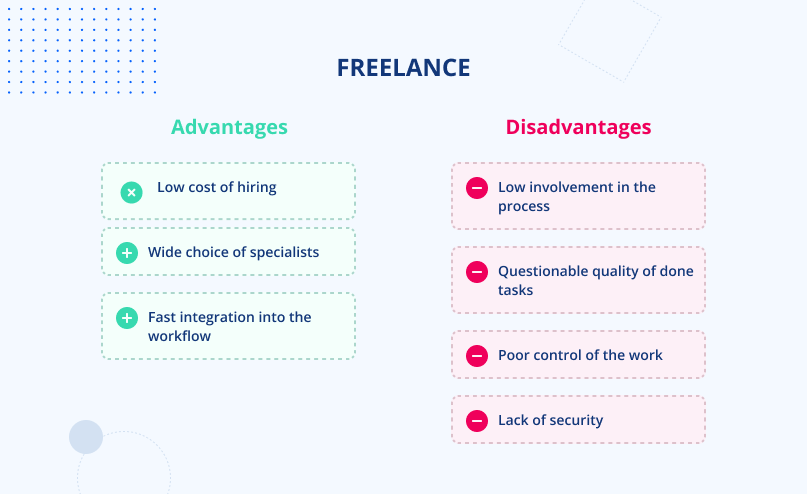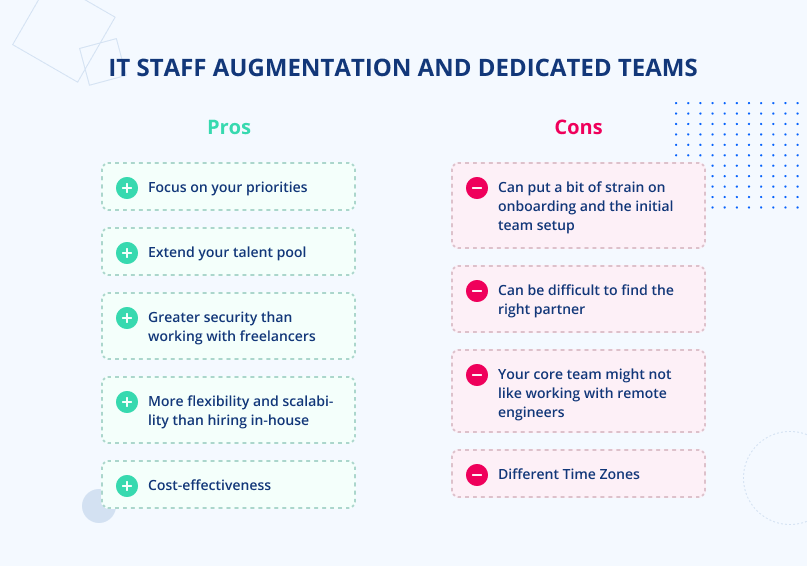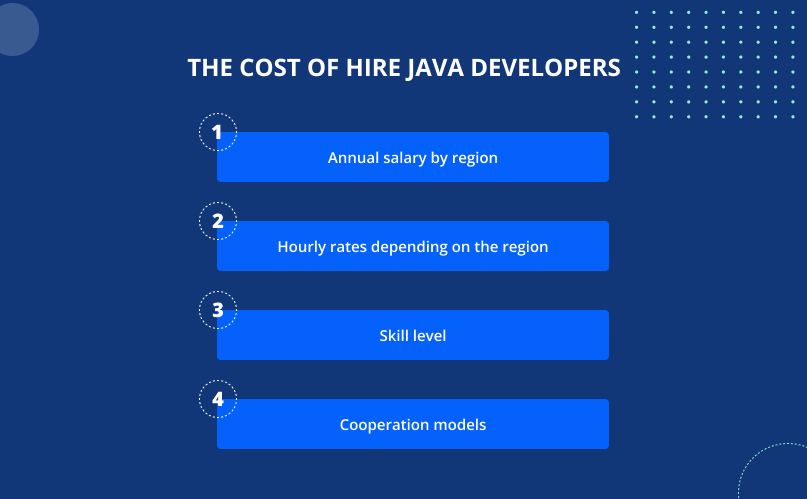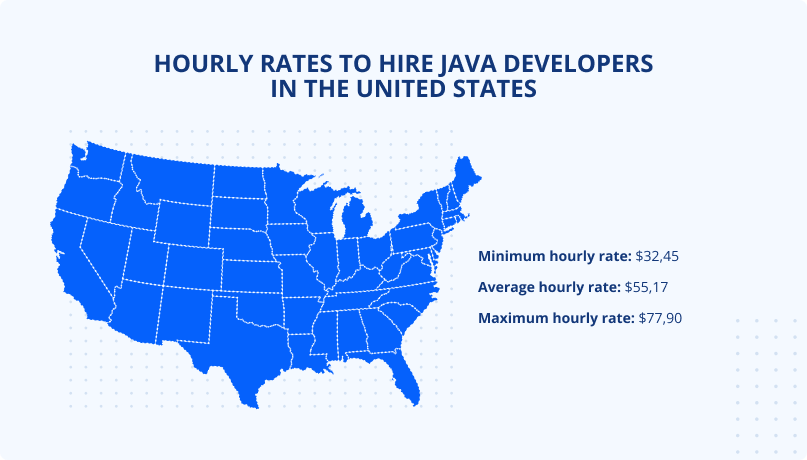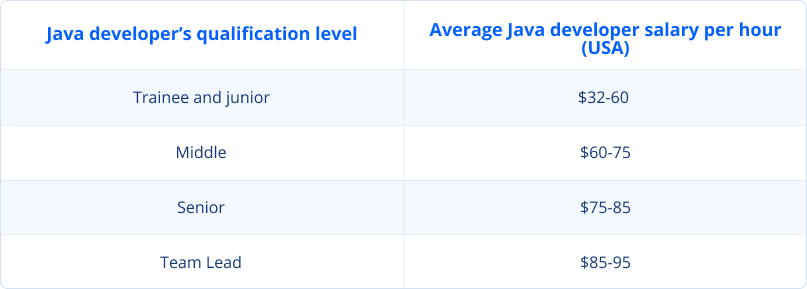Java is a versatile and powerful programming language capable of various software development tasks. This article will detail what Java is, the benefits of Java programming, how to hire Java developers, where to hire programmers, and address frequently asked questions.
What Is Java?
Java is a programming language released by Sun Microsystems in 1995. Although the language was created in 1995, it is still actively used nowadays. Statistical data speak in favor of it. According to the 2023 Stackoverflow survey, Java is in the 7th position among all the software development technologies.
The language is multi-platform, object-oriented, and network-centric, and it can be used as a platform in itself. It’s also free to use for personal use and development.
It’s typically used for server-side development and has been a popular choice for web development for over two decades. Games and applications on Android, desktop allocations, cloud data storage, etc. The Java application field is so broad that we can say that almost every person uses the results of Java developers’ work. Application of Java also spreads to:
- Big data;
- Analytics;
- Machine learning;
- Robotic medicine, and others.
Its popularity is not limited to web apps, however. As VDC Research explains, “Java remains the #1 language for security, analytics, blockchain, data management, microservices, and more.”
Advantages of Hiring a Java Developer
There are numerous advantages to hiring Java developers. These include gaining the benefits of Java’s cross-platform capabilities, broad use cases, a large ecosystem of active users, scalability, security, stability, and ease of use.
Furthermore, millions of software engineers run more than 60 billion Java Virtual Machines worldwide, so when you hire Java programmers, you have a vast pool of quality talent available.
Java Use Cases for Your Business
Java can be used in the following areas: mobile, desktop, web, games, smart devices, distributed applications, cloud-based applications, big data processing, enterprise development, and more.
Top Companies Using Java
There’s no shortage of household names in tech that use Java for software development. Some notable companies that use Java include Google, Spotify, Netflix, Airbnb, Meta (for Instagram), Amazon, and Uber.
Responsibilities of Java Developer
In 2023, there are about 9.4 million Java developers on the globe. This figure keeps growing daily. Before deciding on the specific developer from this extensive pool, it’s essential to have a clear understanding of the tasks you expect this individual to undertake.
Core responsibilities of a Java developer might include:
- Creation of application design and logic;
- Testing and revealing probable bugs;
- Debugging and tweaking to the operational state;
- Project implementation;
- Technical support on all stages.
Depending on your business requirements, the scope of the developer’s responsibilities can increase, decrease, and vary in terms of complexity. Below, we’ll delve into more detail about the specific skills required for the role.
Hard and Soft Skills of Java Developers
When you hire Java developers, it’s worth evaluating both their hard and soft skills. Hard skills refer to quantifiable technical skills, while soft skills relate to character traits and interpersonal skills.
The importance of hard skills for a software engineer is self-explanatory, but soft skills are also vital for a team member to work with other people effectively.
Tech skill set required for a Java developer
Below, we’ll list the hard and soft skills you should look for when hiring a Java developer. The list of skills can be increased depending on the specific needs and demands of your business requirements.
Knowledge of Java
To hire the best Java programmer, you should ensure they have sound knowledge of the language and concepts such as lists, loops, variables, and control structures.
Experience in applying Java build tools: Maven and Gradle
Build automation tools enable the automation of tasks when creating, executing, and testing programs. To save time and resources in Java-based programming, developers should have a handle on commonly used build tools such as Maven or Gradle.
Experience with Java libraries
Java has many libraries, and effectively leveraging their use is essential for getting the most out of the language.
Experience with Java frameworks
Java frameworks, housing pre-existing code snippets, streamline and expedite the creation of Java applications, forming a cornerstone skillset for proficient Java professionals. Notably, Spring frameworks stand out as widely adopted choices, valued for their adaptability and versatility. However, the landscape encompasses a diverse array of alternatives to explore.
Knowledge of object-oriented programming basics and coding patterns
Java is built around the notion of objects, and a full understanding of object-orientated programming enables problems to be solved easily, with greater productivity and ease of scalability, among other benefits.
Knowledge of Java testing tools: Selenium and TestNG
The testing framework TestNG and automation testing tool Selenium enable developers to cut down on maintenance costs and optimize the testing process.
Basic knowledge of HTML layout
While client-side languages such as HTML are not the bread and butter of a Java programmer, understanding the language and layouts helps a Java programmer effectively create user-friendly and modern web applications.
Ability to work with Git control systems
Working with a version control system such as Git is essential as it allows developers to make, track, and manage changes to Java code efficiently.
Ability to work with databases
Knowledge of how to effectively work with databases is essential for more complex programming tasks with a broader range of functionality to store and retrieve the necessary data.
Java libraries every mobile developer needs to know
One of the distinguishing traits of Java lies in its versatile and extensive library ecosystem. Libraries encompass a collection of pre-existing functions, objects, models, classes, and more, serving as invaluable resources for various business tasks. Proficiency in leveraging libraries is essential as it minimizes time investment across all business stages, mitigates code errors, and streamlines operations.
Below, you’ll find a listing of the most prevalent libraries commonly employed in Java applications.
Soft skill basics of Java developers
The soft skills to look for when you hire a Java developer include conflict resolution, clear communication, time management, being a team player, adaptability, and problem-solving.
Best Models for Hiring Java Programmers
There are four main engagement models to consider when you hire Java developers, which we’ll detail below.
Traditional In-house Hiring
Traditional in-house hiring involves recruiting permanent employees to work directly within the organization’s premises. These employees become integral parts of the company’s workforce.
Hiring in-house is typically the most expensive way to hire Java developers because recruiting, training, and retaining in-house talent can be costly. Additionally, conducting a traditional hiring process is time-consuming, with the average duration being 42 days.
Custom In-house Hiring (Tech Recruiting)
Tech recruiting companies are equipped with deep industry knowledge and expertise, enabling them to understand the nuances of Java programming and the unique demands of each business’s needs. This specialized knowledge allows them to source and screen candidates effectively, ensuring a high level of technical proficiency and compatibility with the company’s culture and objectives.
Tech recruitment companies possess a deep understanding of the IT landscape, enabling them to navigate the complexities of Java programmer recruitment with precision and efficiency. Their specialized expertise allows businesses to tap into a vast pool of talent, ensuring access to high-caliber professionals with the requisite skills and experience.
While Custom IT Staffing presents a myriad of advantages, it is not without its challenges. As an example, engaging with tech recruitment services may entail additional expenses, and businesses must weigh the investment against the long-term value gained from accessing top-tier talent.
Freelance
Java freelancers potentially have the lowest rates out of all the hiring methods, which is the main upside to engaging a Java developer freelance worker. Java freelancing has fewer overheads, which allows for cheaper rates. However, engaging a Java freelancer also comes with some things that could be improved.
Businesses often face challenges when engaging a freelancer due to the freelancer’s autonomy and lack of direct oversight. Without being bound by organizational constraints, freelancers operate independently, potentially leading to issues regarding work quality or alignment with business objectives. Many freelancers, including part-time professionals, may juggle multiple commitments simultaneously, spreading their focus thin across various tasks.
While businesses can discuss concerns with freelancers, resolving disagreements may prove difficult if the freelancer is unwilling to cooperate. In such cases, businesses may have no choice but to discontinue collaboration with the freelancer, impacting continuity and timelines.
IT staff augmentation and dedicated development teams
With IT staff augmentation, businesses have the flexibility to hire individual Java developers or specialists to complement their existing in-house team. This approach allows companies to tap into specific expertise as needed without the commitment of hiring full-time employees.
On the other hand, dedicated development teams provide a comprehensive solution by offering a cohesive unit of Java developers along with other essential roles like project managers and quality assurance engineers. By hiring an entire team, businesses can streamline communication, collaboration, and project management, ensuring efficiency and alignment with business objectives.
The Cost of Hire Dedicated Java Developer
The cost of hiring Java developers can vary depending on a number of factors. Below, we’ll discuss how experience level and the location in which you find a Java developer can affect the cost.
Annual salary by regions
The table below provides the average annual income in different countries, which will assist you. The values are taken from the Glassdoor:
Hourly rates depending on the region
Location can significantly affect the cost of hiring Java software developers. In the United States, the average hourly rate for a Java programmer is $55.17. However, to hire the best Java programmer can cost as much as $77.90 an hour, while beginner programmers can be hired for as little as $32.45 an hour.
If you hire Java programmers online who work outside the USA or Western Europe, you can make significant savings. For example, Lithuanian senior Java developers work for an hourly rate that may range from $39 to $62.
Skill level
Skill level is another factor that can impact the cost of hiring software developers. As mentioned, in the USA, an entry-level Java coder can be hired for as little as $32.45 an hour, while a Java expert can command as much as $77.90 an hour. Hiring experienced programmers can cost more than triple the amount of hiring a beginner.
Cooperation models
Once you’ve decided where to hire programmers, you’ll need to put some thought into the best cooperation model. Here’s an overview of the pricing models for different cooperation models:
- Traditional In-House Hiring:
- With traditional in-house hiring, the company bears the cost of recruiting, onboarding, and retaining Java developers directly.
- Costs may include salary, benefits, recruitment expenses (e.g., advertising, hiring events), onboarding costs, and ongoing employee-related expenses (e.g., workspace, equipment, training).
2. Custom IT Staffing (Tech Recruiting):
- The company would pay a fee to the staffing agency upon successfully hiring a Java developer. The fee could be based on the developer’s monthly salary.
- If using a pay-per-hire model, the cost would depend on the agreement with the staffing agency. It might include additional costs if the developer leaves within a specified period, as per the guarantee.
3. Freelancers:
- Hiring Java developers as freelancers through online marketplaces involves paying fees to the platform to facilitate the connection.
- The expenses associated with hiring freelancers can fluctuate significantly, influenced by factors such as their level of experience, expertise, the complexity of the task at hand, and the fee structure of the platform being utilized.
- Freelancers typically charge hourly, daily, or project-based rates. For Java developers, rates may range from $25 to $150 per hour or more, depending on skill level and location.
4. Dedicated Team Pricing Model:
- Hiring a dedicated team of Java developers would involve paying their salaries or hourly wages.
- The average hourly rate for Java developers can vary depending on factors such as location, experience, and skill level. For example, in Poland, senior developers’ rates may range from $39 to $70 per hour or more.
















